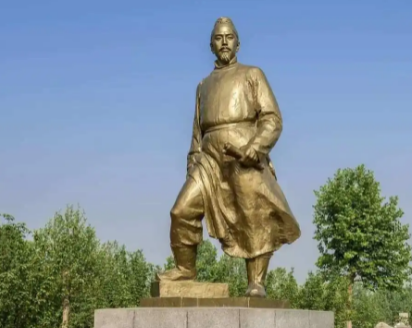In the history of the Ming Dynasty in China, there was a period known as the "Three Great Campaigns of the Wanli Emperor". This refers to three large-scale military operations launched by the Ming Emperor Wanli during his reign, namely the Ningxia Campaign to suppress the rebellion of the Mongols, the Bozhou Campaign to suppress the rebellion of the Miao people, and the Korean Campaign to resist Japanese aggression. These three campaigns demonstrated the military strength and national influence of the Ming Empire, but also emptied the national treasury, revealing the financial difficulties within the Ming Dynasty.

First, let's look at the Ningxia Campaign. In 1592, the leader of the Mongol tribe, E'erqi, launched a rebellion in Ningxia, threatening the border security of the Ming Dynasty. Emperor Wanli dispatched a large army to suppress the rebellion and successfully put it down. This campaign demonstrated the military strength of the Ming Dynasty, consolidated border security, but also consumed a large amount of manpower and material resources.
Next is the Bozhou Campaign. In 1596, the leader of the Miao people in Bozhou, Guizhou, Yang Yinglong, launched a rebellion, threatening the rule of the Ming Dynasty. Emperor Wanli sent another large army to suppress the rebellion. After a long period of fighting, the rebellion was successfully put down in 1600. This campaign further demonstrated the military strength of the Ming Dynasty, but also increased the burden on the national treasury.
Finally, there was the Korean Campaign. In 1592, Toyotomi Hideyoshi of Japan launched an invasion of Korea, threatening the East Asian order of the Ming Dynasty. Emperor Wanli decided to send troops to assist Korea in a seven-year long battle against the Japanese army. Although the Japanese army was eventually driven out and Korea was defended, it also nearly depleted the national treasury of the Ming Dynasty.
Overall, the Three Great Campaigns of the Wanli Emperor showcased the strong national might of the Ming Dynasty, but also revealed its internal financial problems. These three large-scale military operations consumed excessive resources, leading to the emptying of the national treasury and laying the groundwork for the decline of the Ming Dynasty in the later period.
Disclaimer: The above content is sourced from the internet and the copyright belongs to the original author. If there is any infringement of your original copyright, please inform us and we will delete the relevant content as soon as possible.































